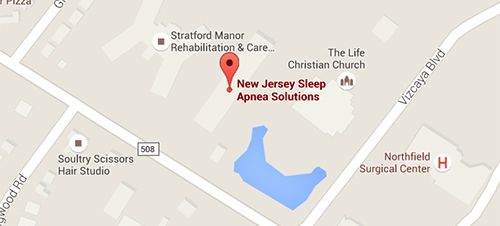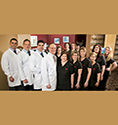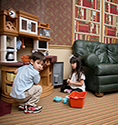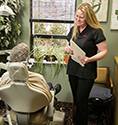Who Is Most Likely to Suffer From a Sleep Disorder?
Submitted by New Jersey Snoring Solutions on Mon 08/11/2014 - 15:38

At New Jersey Sleep Apnea solutions, Dr. Ivan F. Stein and his team often hear the question, “Who is most likely to suffer from a sleep disorder?” The answer is that it depends on what the sleep disorder is. Here is some general information about who is most likely to suffer from some of the following common sleep disorders.
Sleep Apnea
There are several factors that put individuals at an increased risk of suffering from sleep apnea. The increased risk factors include:
· Being overweight (although sleep apnea does affect individuals with slim builds, too)
· A narrow or constricted airway
· Having a thicker neck circumference, which tends to make the airway narrower
· Being male
· Being over the age of about 60
· A family history of sleep apnea
· Certain races (e.g., among individuals under the age of 35, African Americans are more prone to developing obstructive sleep apnea)
· Alcohol and other sedative use
· Smoking
· Chronic nasal congestion
Insomnia
In contrast to sleep apnea, which more men suffer from than women, more women suffer from insomnia than men. In addition, the following people are more prone to experiencing insomnia:
· Individuals of advanced age
· Those who work in shifts and have frequent changes in their shift times
· Travelers
· Drug users
· Young adults or adolescent students, both of who are likely to be adjusting to increasingly complex work or school schedules, respectively
· Women who are pregnant
· Menopausal women
· Individuals with mental health disorders
Restless Leg Syndrome
We do not know exactly what causes restless leg syndrome (RLS), but research has demonstrated the following correlations:
· The onset of one type of RLS usually occurs after the age of 45, and is abrupt. However, the symptoms do not usually worsen over time. This type of RLS does not typically run in families.
· The onset of another type of RLS generally occurs earlier in life — before the age of 45 — and tends to run in families. Individuals with this type of RLS usually have the sleep disorder for the rest of their lives. With this type of RLS, symptoms become increasingly worse over time, and the bouts of RLS occur more often as time goes on.
· Certain conditions and diseases can trigger RLS. For instance, RLS has been linked to iron deficiencies, pregnancy, rheumatoid arthritis, kidney failure, Parkinson’s disease and diabetes. Certain medications may also trigger RLS, including some antipsychotic drugs such as aripiprazole (Abilify).
· Also, RLS tends to affect women slightly more than men.
If you suffer from obstructive sleep apnea and long for a good night’s sleep, we can help. To schedule an appointment with Dr. Stein or his trusted staff, contact New Jersey Sleep Apnea Solutions by calling (855) 949-7667.







